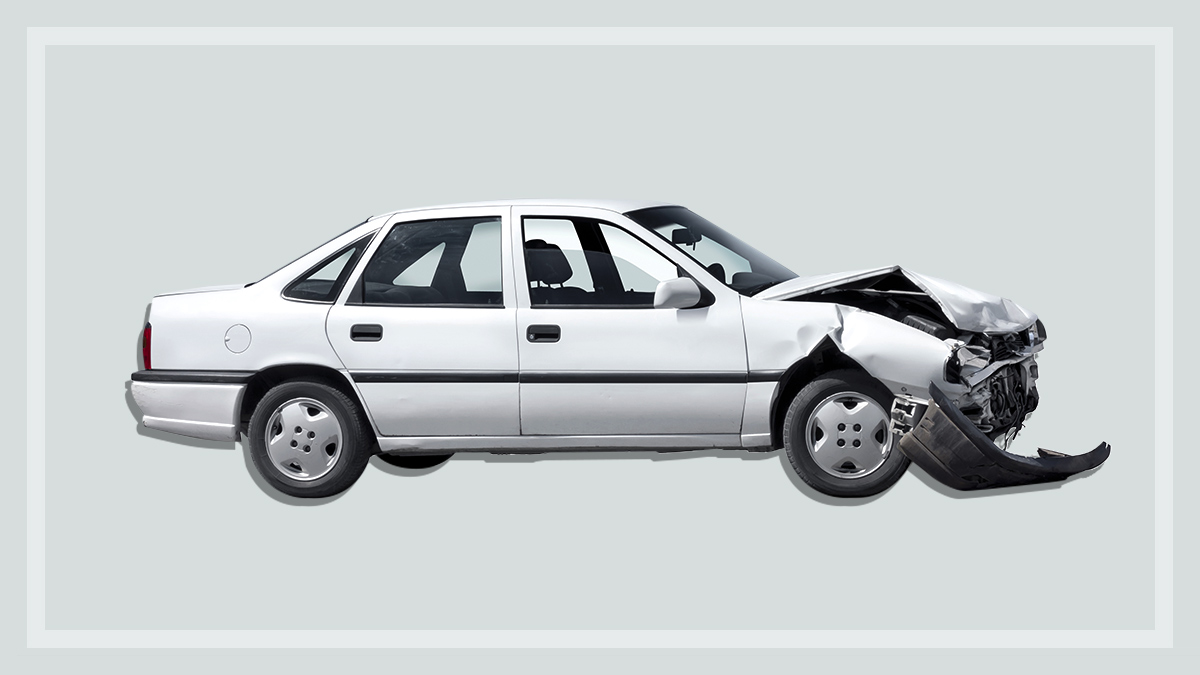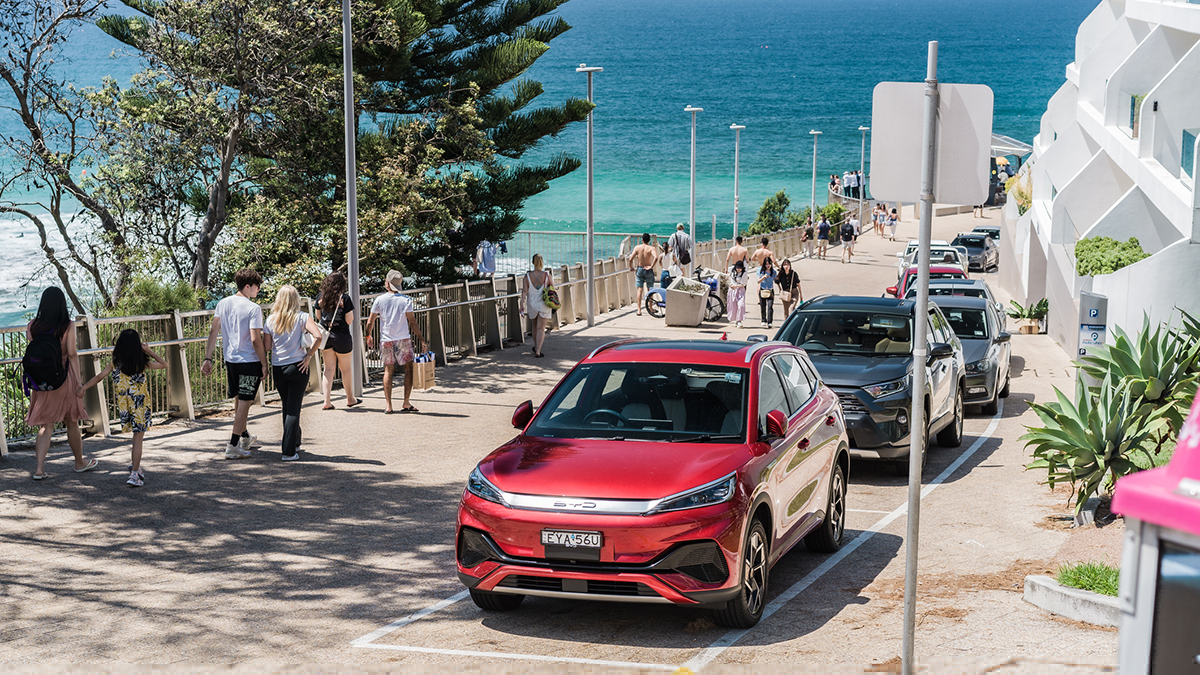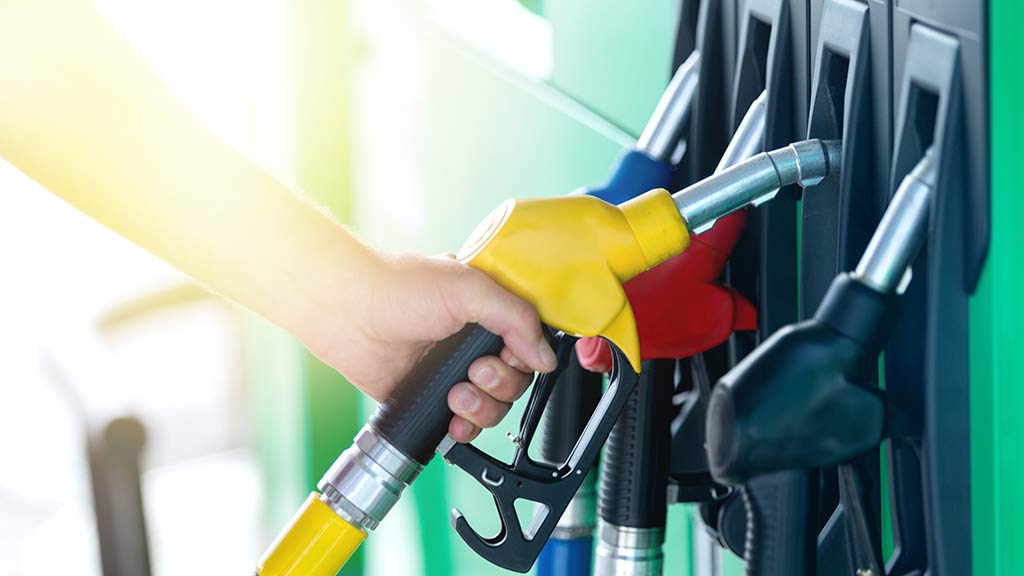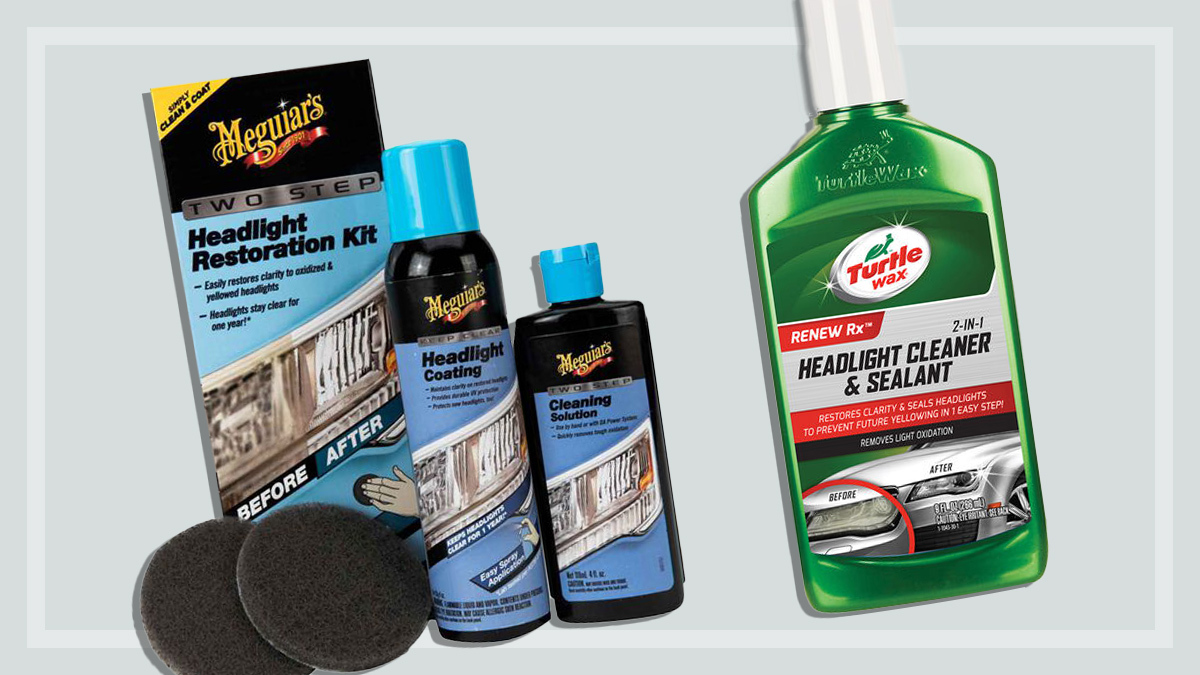Get our independent lab tests, expert reviews and honest advice.
How to get the best roadside assistance plan for you
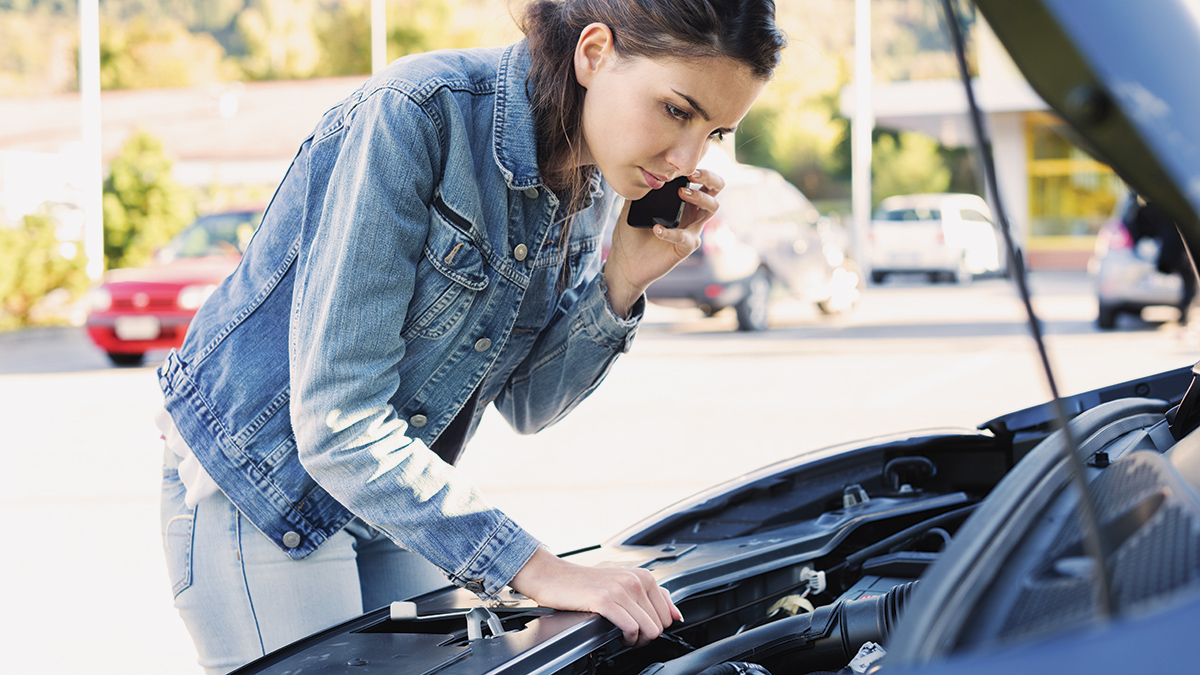
A breakdown or flat battery can spoil a day, or ruin a holiday. Roadside assistance plans can give you peace of mind that if you’re ever stranded you can get professional help without having to shell out huge amounts of money on the spot.
On this page:
- Who sells roadside assistance?
- What's covered by roadside assistance?
- How much is roadside assistance?
- What to watch out for
- What do motoring clubs offer and how much do they cost?
- What's the difference between roadside assistance and car insurance?
- New car owners can get roadside assistance through the dealership
Who sells roadside assistance?
Before buying a motoring club membership, you might want to check if you already have roadside assistance included with your car insurance or new car after-sales service.
- State-based motoring clubs sell it outright (e.g. NRMA, RACV and RACQ). They have reciprocal arrangements with each other to provide assistance to their members when travelling interstate.
- Some car insurers offer it as an optional extra for comprehensive car insurance customers (e.g. AAMI and GIO). Youi includes it by default in their comprehensive policy, while Allianz and Budget Direct sell it to the general public as a standalone service.
- Major car companies frequently offer it as part of their after-sales service. Find out more about new car roadside assistance.
- Dedicated roadside assistance providers also exist (e.g. 365 Roadside and 24/7 Roadservices).
What’s covered by roadside assistance?
All roadside assistance programs offer the same basic service:
- You get in touch with a call centre, who will try to diagnose your problem and give you advice to help you fix it on your own.
- Failing that, they’ll send out a technician to fix your car on the spot, or a tow truck to get you to a service centre.
Other common roadside assistance services
- Flat battery replacement or repair, or a jump start.
- Tyre change, provided you have a roadworthy spare.
- Emergency fuel top-up (sometimes for free, sometimes at your own cost) to get you to the nearest petrol station.
- Lock-out rescue: either helping break into your car, or paying to send someone to retrieve a spare set of keys. Some plans will cover the cost of a locksmith to recut your key.
- Towing: distance limits usually apply, especially outside metro areas.
- Basic repairs, with some plans covering a small amount for the cost of parts.
Extra features that come with more expensive plans include ‘health checks’ for your vehicle, child seat installation, accommodation if you break down away from home, and a hire car if your car can’t be repaired quickly.
Some providers have weight restrictions for their cheaper options, so if you have a trailer or caravan, 4WD or motor home, you’ll probably need to look for a more expensive plan. The same goes if you do a lot of travelling: these options usually have higher benefits for accommodation and towing outside metro areas.
How much is roadside assistance?
- Basic plans can cost less than $100 a year. If you’re after a plan with the highest benefits and extra features, you might pay over $300.
- If you buy it as an add-on with a car insurance policy it can cost around $100.
- Some roadside assistance providers will charge you extra if you don’t sign
up till you’re on the side of the highway waiting for a tow. Allianz hits
you with an extra $100 for using their services within the first 48 hours
of signing up.
- State-based motoring clubs offer roadside assistance for teenagers through the Free2Go program. The schemes differ from state to state, but usually offer one free year of basic roadside assistance, and discounted membership in subsequent years.
If you live in the country or you travel a lot, then you should consider opting for a higher level of cover
As you’d expect, more expensive plans tend to come with more bells and whistles than you get with a budget plan. Top shelf plans tend to have higher benefits, as well as extra features that go beyond simply getting your car back on the road.
- Tow and tyre replacement services are offered to heavier vehicles.
- Towing distances are usually higher, meaning you’re less likely to get stuck with a bill.
- Usually, more generous benefits for things like fuel top-ups and locksmith services.
- Hire car for a week or more while yours is in the shop.
- Emergency accommodation and transport if you break down on the open road.
If you live in a city, a budget plan might be enough to suit your needs. But if you live in the country or you travel a lot, then you should consider opting for a higher level of cover.
What to watch out for
- Is cover for the driver or the vehicle? It’s a question of what your money is really paying for. Will anyone driving your car be covered, or will you be covered in any car you drive?
- Annual call-out limits Nobody thinks they’ll ever need more than four jump-starts a year… until the fifth time the car won’t start. Something to consider if your car is less than reliable.
- Who pays for petrol? If you run out of fuel, some plans will give you a few litres at no extra charge. Others will make you pay for it on the spot.
- “We will arrange” Watch out for this clause in the terms and conditions. It may apply to a taxi ride from the scene of a breakdown, a locksmith to re-cut your key, or emergency accommodation. It means the company will make the phone calls for you while you’re stuck on the side of the road but, unless specified, you’ll have to pay for it.
- Towing limits Most roadside assistance plans have a limit to how far you’ll be towed before you have to chip in for it. Usually it’s one rule for metro areas (each company will have their own definition of that) and one for regional areas. In cities you’ll have a kilometre limit that starts from the scene of the breakdown. In the country (particularly very remote areas) you might have a higher distance limit, but it could take into account the tow truck’s trip out and back.
- Pre-existing conditions If your car breaks down due to a problem that existed before you signed up for roadside assistance, some providers will charge an additional call-out fee.
What do motoring clubs offer and how much do they cost?
Motoring clubs exist in each state and territory and offer roadside assistance combined with membership discounts and perks. They normally have a number of different plan levels with different benefits and costs. The benefits usually apply for a nominated car. More expensive plans sometimes cover a nominated driver regardless of the car they’re in.
They can also help you if you break down and aren’t a member, but you need to sign up on the spot. Extra fees may apply and sometimes not all benefits are available.
Motoring clubs can help change a wheel, jump start your car, sell and install a new battery for you or provide emergency fuel. They may also help with windscreen chip repairs and provide a benefit for a locksmith or key replacement.
They can tow your vehicle to the nearest service centre after a mechanical breakdown (km limits apply), while some plans allow for a second tow from the service centre to your preferred repairer.
If you’re far from home, travel benefits like accommodation, car rental, passenger transport (sometimes even for your pets) and vehicle recovery can apply.
Some plans also cover a trailer or caravan and extra heavy vehicles. Cover for bicycles, wheelchairs or mobility scooters may also be available.
NRMA has three different levels of roadside options ranging from Everyday Care at $120 a year to Ultimate Care at $288 a year with add-on options for vehicles over 3.5 tonnes (t) at $132 a year, travel benefits for pets at $45 a year, and extra towing distance at $12 per 10km a year.
Everyday care includes:
- unlimited call-outs
- towing (25km for metro; to nearest service centre for country)
- add-on options for windscreen chip repair, key replacement, extra towing distance, and pet travel assistance.
Ultimate care includes:
- unlimited call-outs
- towing (100km, includes caravans up to 2t, add-on cover for vehicles above 3.5t)
- $200 locksmith allowance
- $50 taxi allowance up to three times per year
- windscreen chip repair
- key replacement
- $4000 breakdown travel assistance for car rental, accommodation or public transport costs
- add-on options for extra towing distance and pet travel assistance.
Assistance for non-members: High fee of $206 in addition to one-year plan cost, but this gives you cover for two years.
Website: NRMA
Phone: 13 11 22
AANT has three different levels of roadside assistance plans. They range from Standard ($99) to Premium ($225), plus a $45 one-off joining fee.
Standard includes:
- eight call-outs
- towing (8km for metro; 32km for country)
- $22 locksmith allowance per incident.
Premium includes:
- unlimited call-outs
- towing (50km for metro; 200km for country; special equipment $220 per year; second tow 20km)
- $165 locksmith allowance per incident
- $55 taxi allowance
- $11 battery discount
- travel benefits if more than 100km from home (vehicle recovery, accommodation up to five nights, rental car up to seven days, passenger transport by air or coach up to $550, pet transport up to $220. Conditions apply and depend on the incident and length of repair time needed).
Joining fee: $45
Assistance for non-members: Service fee may apply in addition to plan cost.
Website: AANT
Phone: 13 1111
RAA has three different levels of roadside assistance plans ranging from Standard for $107 per year to Premium for $208 per year.
Standard includes:
- four call-outs
- towing (10km for metro; 40km for country)
- $50 locksmith allowance per incident
- emergency fuel at your own cost.
Premium includes:
- unlimited call-outs
- towing (50km for metro; 200km for country; special equipment $300 a year; second tow 20km)
- $150 locksmith allowance
- emergency fuel at your own cost
- $55 taxi allowance
- $20 battery discount
annual benefit up to $3500 in the first year and up to $5500 in subsequent years
- travel benefits if more than 100km from home (accommodation up to five nights, rental car up to seven days, passenger transport by air or coach up to $800, pet transport up to $220, vehicle and caravan vehicle recovery. Conditions apply and depend on the incident and length of repair time needed).
Assistance for non-members: Service fee may apply in addition to plan cost.
Website: RAA
Phone: 13 1111
RACT has two different levels of roadside assistance plans: Advantage at $121 a year, and Ultimate at $209 a year.
Advantage includes:
- six call-outs per year
- any vehicle the member is driving
- towing (15km for metro; 32km for country)
- emergency fuel at your own cost.
Ultimate includes:
- unlimited call-outs
- any vehicle the member is driving
- unlimited towing in Tasmania, $200 heavy vehicle towing, second tow, $100 for towing after a crash
- 10L free emergency fuel
- rental car for three days or accommodation for three days
- $165 locksmith allowance
annual benefit of up to $5000
- travel benefit when more than 50km from home (accommodation, rental car, passenger transport, vehicle recovery).
Assistance for non-members: Extra charge in addition to plan cost; only Advantage plan benefits will be provided.
Website: RACT
Phone: 13 11 11
RACQ has five different levels of roadside assistance plans ranging from Roadside at $101 a year to RACQ Ultimate at $295 a year.
Roadside includes:
- unlimited call-outs
- towing (20km to nominated location or up to 50km to the nearest RACQ contractor premises)
- emergency fuel at your own cost.
RACQ Ultimate includes:
- unlimited call-outs
- any vehicle the member is driving
- towing (100km to nominated location or up to 200km to the nearest RACQ contractor premises; $250 specialist towing)
- free emergency fuel up to four times a year
- $150 taxi allowance
- rental car for three days
- $300 locksmith allowance
- travel benefit when more than 100km from home (accommodation up to $2400, vehicle and caravan recovery, rental car up to 12 days, and alternative transportation for up to six people).
Assistance for non-members: $120 in addition to plan cost.
Website: RACQ
Phone: 13 1905
RACV has three different levels of roadside assistance plans ranging from Roadside Care at $118 per year to Total Care at $270 per year.
Roadside Care includes:
- unlimited call-outs
- towing (20km for metro; nearest service centre for country)
- $80 taxi allowance
- $200 locksmith allowance
- free emergency fuel
- $750 travel allowance when over 100km away from home.
Total Care includes:
- unlimited call-outs
- any vehicle the member is driving
- towing (100km)
- $300 taxi allowance
- $350 locksmith allowance
- free emergency fuel
- $2400 travel allowance when over 100km away from home.
Assistance for non-members: No extra cost but a one- or two-year subscription must be purchased and some benefits are not available.
Website: RACV
Phone: 13 11 11
RAC has four different levels of roadside assistance plans. They range from Standard at $111 per year to Ultimate Plus at $320 per year.
Standard includes:
- unlimited call-outs
- towing (15km for metro; 80km for country).
Ultimate Plus includes:
- unlimited call-outs
- any vehicle the member is driving
- towing (200km for metro; 300km for country; second tow)
- $50 free emergency fuel in country areas
- rental car for five days or accommodation for three days
- $100 taxi allowance
- $200 locksmith allowance
- annual benefit of up to $7000
- travel benefit when more than 100km from home (accommodation and rental car up to $1260, passenger transport, vehicle recovery).
Assistance for non-members: Extra charge in addition to plan cost.
Website: RAC
Phone: 13 17 03
What’s the difference between roadside assistance and car insurance?
Rear-ended another car? Call your insurer. Left the lights on overnight and drained your battery? Call roadside assistance. Need help, such as towing and emergency transport, immediately after an incident? Both roadside assistance and car insurance offer similar services.
The key difference is that car insurance doesn’t cover you for mechanical failure or breakdowns, which is why roadside assistance exists. They work hand in hand so that, no matter the reason your car won’t go, you have someone to call who can get you on the road again.
If your car needs to be taken to a mechanic after a breakdown, you’re liable for the repair bill. But if it’s taken to a mechanic following an accident, the insurer will cover most of the repair costs.
New car owners can get roadside assistance through the dealership
Some car manufacturers offer roadside assistance for new vehicles, often under the proviso that you get the vehicle serviced regularly at the company’s dealership or service centre. Some companies such as Hyundai provide new car roadside assistance for up to 10 years on from purchase.
This cover is often included in the cost of an annual service at their dealerships. Every time you get your car serviced there, it extends the cover for another 12 months. If you need to get a tow, in most cases your car will be taken to the nearest dealership or authorised service centre.
Ford and Holden offer roadside assistance through each state’s motoring club (NRMA, RACV, RACQ, etc.).
Some car companies offer roadside assistance as part of a wider suite of after-sale services (especially for luxury cars), while others, such as Honda, will bundle it with an extended warranty. Toyota sells roadside assistance as an add-on.
These options often provide little more than the cover sold by car insurers or motoring clubs. So if you’re after extra features like locksmith services or a car rental benefit, you may need to keep looking.

